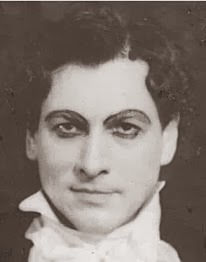Donat
Donatov (1914)
Born in Saint-Peterburg. After the revolution his family immigrated to Riga.
His vocal teacher was Vladimir Shetohin-Alvarec, the disciple of Lamperti. In Riga he made his début in
the role of German in a private opera troupe.
In 1937 he went to Italy where he is heard by Gigli
and studies with Pertile. In 1939 he makes his début on the scene of the
Venetian theater La Fenice
in “Troubadour”. Alongside with him in this presentation sing both Maria
Caniglia and Carlo Tagliabue. In La
Fenice he also played Alfredo in “La Traviata”, where his
partner was Toti dal Monte.
The beginning of the World War made Donatov
stay in Riga instead of going to Italy again.
After the occupation of Latvia
by German forces he is forcefully sent to work in Germany,
where he sings in the opera theaters of Dresden
and Konigsberg. Just before the liberation of Latvia he got
back and participated in the local resistance to the Germans.
After World War ended, Latvia became a part of USSR, and in 1949-51 Donatov performed in Odessa, being one of the
very few artists allowed to sing in Italian. Among his best roles were Jose,
Canio, Turiddu, Othello, Rhadames, Duke.
In the 1950-ies Donatov gets back to
Saint-Petersburg. For a couple of seasons he appears in Saint-Petersburg Maliy
Opera Theater.
